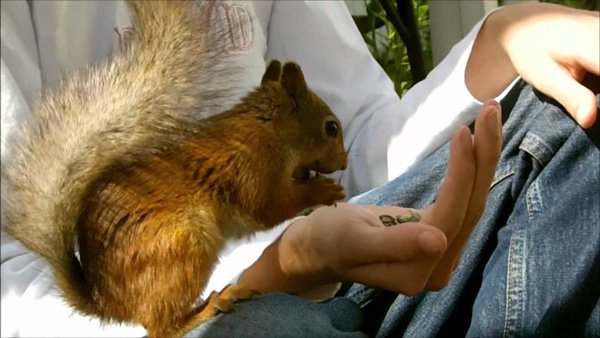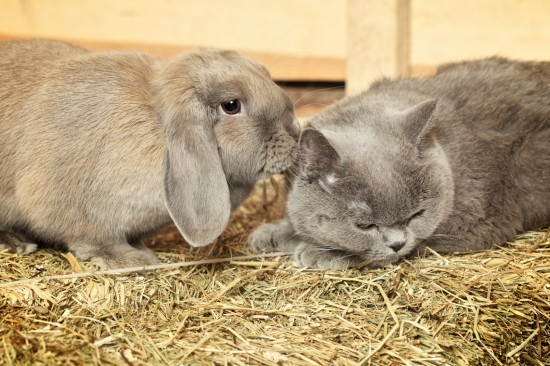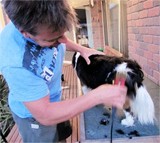Pet hearing loss is not only traumatic for a pet, but also a seemingly disaster for pet owners. The pet is no longer able to hear your voice expressing tender words or giving commands.
At the onset of hearing loss the pet appears confused and is extra cautious in moving about. The pet can see, but the hearing loss confuses him. When a pet cannot hear he is also in greater danger if the circumstances are that he cannot see or smell the danger in order to escape to safety.
Do you own a floppy eared dog? These dogs are more prone to ear infections because of the bacteria and yeast in their ears. The bacteria and yeast are normal; however, when continuous moisture is present because of the floppy ear design, trouble is also brewing. Pet hearing loss will occur if these bacteria and yeast are not eliminated.
The continuous moisture becomes a feasting bed for the bacteria or the yeast. When excessive growth occurs there will be a foul odor from the pet抯 ears. Cleaning of the ears at least twice a week or more becomes a necessity. Infection will need holistic or medical assistance.
Symptoms of an ear infection or ear problems are:
1. Rubbing head on the floor
2. Shaking head and ears
3. Scratching
4. Redness in ear, tender to the touch and pain
5. Discharge from the ear can be yellowish, brown or black
6. Swollen ear flaps
7. Hearing loss
Most ear problems or ear infections can be treated successfully. But, if you have a floppy eared dog like a hound or a cocker spaniel it seems to be a continuous or chronic problem. You feel bad for the dog because they appear miserable while the infection is active.
In addition to cleaning the ears; check for allergies. Does your pet have allergies or skin problems? If there are problems with the skin you may find the ear problems continue. Now, you have to become a detective and locate the source which is causing the allergic difficulties.
Possible causes for the allergies are:
1. Food supply
2. Environment
3. Another pet in the house
4. Yard care products
5. Household chemicals
Prevention:
1. Check ears routinely from objects and dirt
2. Clean ears with a cleansing lotion particular to the existing problem
3. Trim any excess ear hair
4. Floppy ears can be tied together to air
From my personal experience it is best to use cleaning agents which your vet recommends. Over the counter products seem to have quite a bit of alcohol and the pet feels the stinging action from it. Some products are oil based and will do more harm as it may worsen the ear infection.
The vet has the tools to diagnose the type of bacteria or yeast problem which the pet is experiencing and prescribe a remedy which will or may remove the bad bacteria or yeast.
Some pets with chronic ear infections will need life long treatments. My American cocker spaniel has been having his ears taken care of for 12 years. It seems that the bacteria are very resistant to many of the medications which our vets have prescribed through the years.
Some people will consider surgery cleansing surgeries if it can help their pet. There are two types of surgeries. They are known as shallow and deep cleansing.
With my cocker spaniel a change in food made a big difference in the intensity of the ear infection and his hearing loss. I wish I had learned about food changes and had knowledge of natural remedies in his earlier years. I have been reformed to follow natural remedies for pet care.
In addition to home prepared foods, you may wish to consider natural remedies in hair shampoos, conditioners, and other skin care products which are more appropriate for your pet抯 skin care.
Do you recall the expression 揧ou are what you eat? The same applies to our pets.
Discover natural pet foods which are prepared with home cooking. Visit the pet care section of Infotrish at http://www.Infotrish and review Dog Food Secrets.

 Know All About Choosing Extendable Dog Leads
Know All About Choosing Extendable Dog Leads
T
Know All About Choosing Extendable Dog Leads
Know All About Choosing Extendable Dog Leads
T
 Greater Swiss Mountain Dog Hereditary Health And Longevity
Greater Swiss Mou
Greater Swiss Mountain Dog Hereditary Health And Longevity
Greater Swiss Mou
 Introducing Cats And Rabbits
Introducing Cats
Introducing Cats And Rabbits
Introducing Cats
 How To Keep Chickens - Chicken Coops
With regards to keeping your own chicken coop you reall
How To Keep Chickens - Chicken Coops
With regards to keeping your own chicken coop you reall
 How to groom your dog from home
How to groom your dog from home